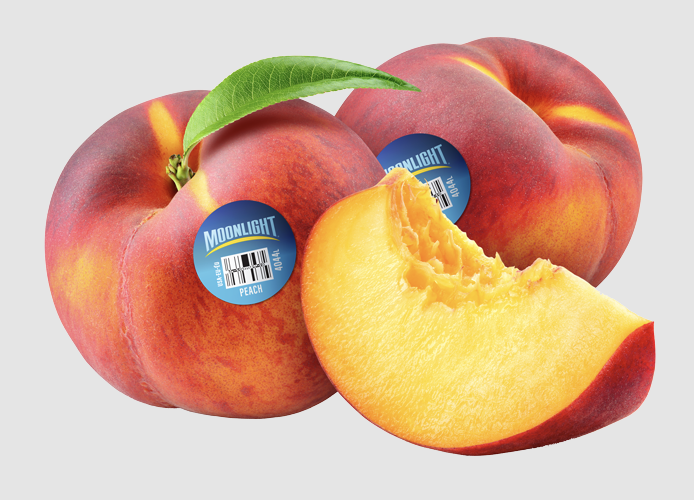
The FDA has announced an urgent recall involving peaches sold at major US retailers—some of the most familiar names in your grocery routine.
While peaches are known for being sweet and refreshing, these particular batches may contain a bacterium that poses serious health risks.
Why are the peaches being recalled
The recall centers on select lots of Moonlight Companies’ California-grown yellow and white peaches, distributed nationwide between September 16 and October 29, 2025. The FDA’s investigation found that these peaches may be contaminated with Listeria, a bacterium notorious for causing foodborne illness outbreaks.
How to identify the recalled peaches
With so many peaches on the market, it can be tricky to know if yours are affected. Here’s what to look for:
Moonlight Yellow Peaches (Individual):
- PLU Sticker: 4401 4044
- Various lot codes including: 01PCLC, 03PCAF, 106PCLF, 113PCAF, and dozens of others
Moonlight Yellow Peaches (Multipacks):
- UPC: 8 10248 03165 6 or 8 98429 00209 1
- Same lot codes as individual pieces
Moonlight White Peaches (Individual):
- PLU Sticker: 4401 4044
- Same extensive list of lot codes
Moonlight White Peaches (Multipacks):
- UPC: 8 10248 03163 28 98429 00209 1
- Same lot codes
Kroger Yellow Peaches (Multipacks):
- UPC: 11110 18174
- Same lot codes as other varieties
Where Sold: Walmart, Trader Joe’s, Sam’s Club, Kroger, and possibly other retailers nationwide.
Important Note: peaches labeled “Washington” or “Organic” are not affected by this recall.
While no illnesses have been reported yet, the recall is a proactive step to prevent anyone from getting sick.
Also read: Time to clean out that spice cabinet: FDA expands dangerous cinnamon recall to 16 brands
Why this concern seniors most
Adults 65+ are 4 times more likely than other people in the US to get listeria infections, and the consequences can be devastating. 1 in 6 older adults with this infection die, compared to much lower mortality rates in younger, healthier populations.
Listeria is the third leading cause of death from food poisoning in the US, claiming approximately 260 lives annually. Every year in the US, an estimated 1,250 people get sick from Listeria, with more than half of all Listeria infections occurring among people 65 years and older.
The biological reasons behind this vulnerability are straightforward but concerning. As you get older, your immune system has a harder time recognizing and getting rid of harmful germs, including Listeria. Additionally, you also have less stomach acid, which can help kill germs.
Symptoms often start within a day of eating tainted food but can appear up to two weeks later. Symptoms usually start within 2 weeks after eating food contaminated with Listeria but may start as early as the same day or as late as 10 weeks after.
Early symptoms include:
- High fever and chills
- Severe headache
- Muscle aches and fatigue
- Nausea and vomiting
- Diarrhea
The germs can spread through the blood and into the brain and spinal cord, causing stiff neck, confusion, or changes in alertness, and loss of balance.
Also read: Massive 5 million pound chicken recall: Find out if your dinner is affected
What to do if you have recalled peaches
- Don't eat them - Even if they look, smell, and taste fine
- Dispose of them safely - Throw them away or return to the store for a full refund
- Clean thoroughly - Sanitize any surfaces, containers, or utensils that may have touched the peaches
- Monitor your health - Watch for symptoms for up to 10 weeks
For more information about the recall, you can contact Moonlight Companies directly at 855-215-5017. If you’re concerned about symptoms or your health, don’t hesitate to reach out to your healthcare provider.
Food safety tips for seniors
Beyond this specific recall, older adults can take several steps to reduce their overall listeria risk:
- Keep refrigerators at 40°F or below and freezers at 0°F
- Clean hands, surfaces, and utensils frequently
- Avoid high-risk foods like unpasteurized dairy products, deli meats (unless heated to steaming), and raw sprouts
- Use or freeze perishables quickly
- Stay informed about food recalls through FDA and CDC alerts
Read next:
- Is your favorite fish unsafe? What you need to know about the nationwide recall
- Is your favorite Halloween candy putting you at risk? Two popular bars recalled over “life-threatening” allergen
- Taco kit mix-up prompts nationwide recall, affecting multiple states
Food recalls can be unsettling, especially when it’s a favorite fruit or a staple in your kitchen. Have you ever had to toss out food because of a recall? Do you have tips for keeping your kitchen safe and organized? Or maybe you have questions about food safety and recalls in general?







